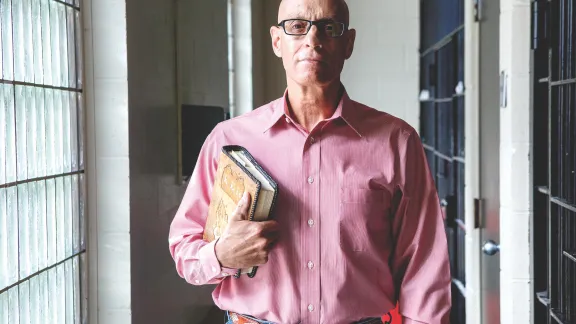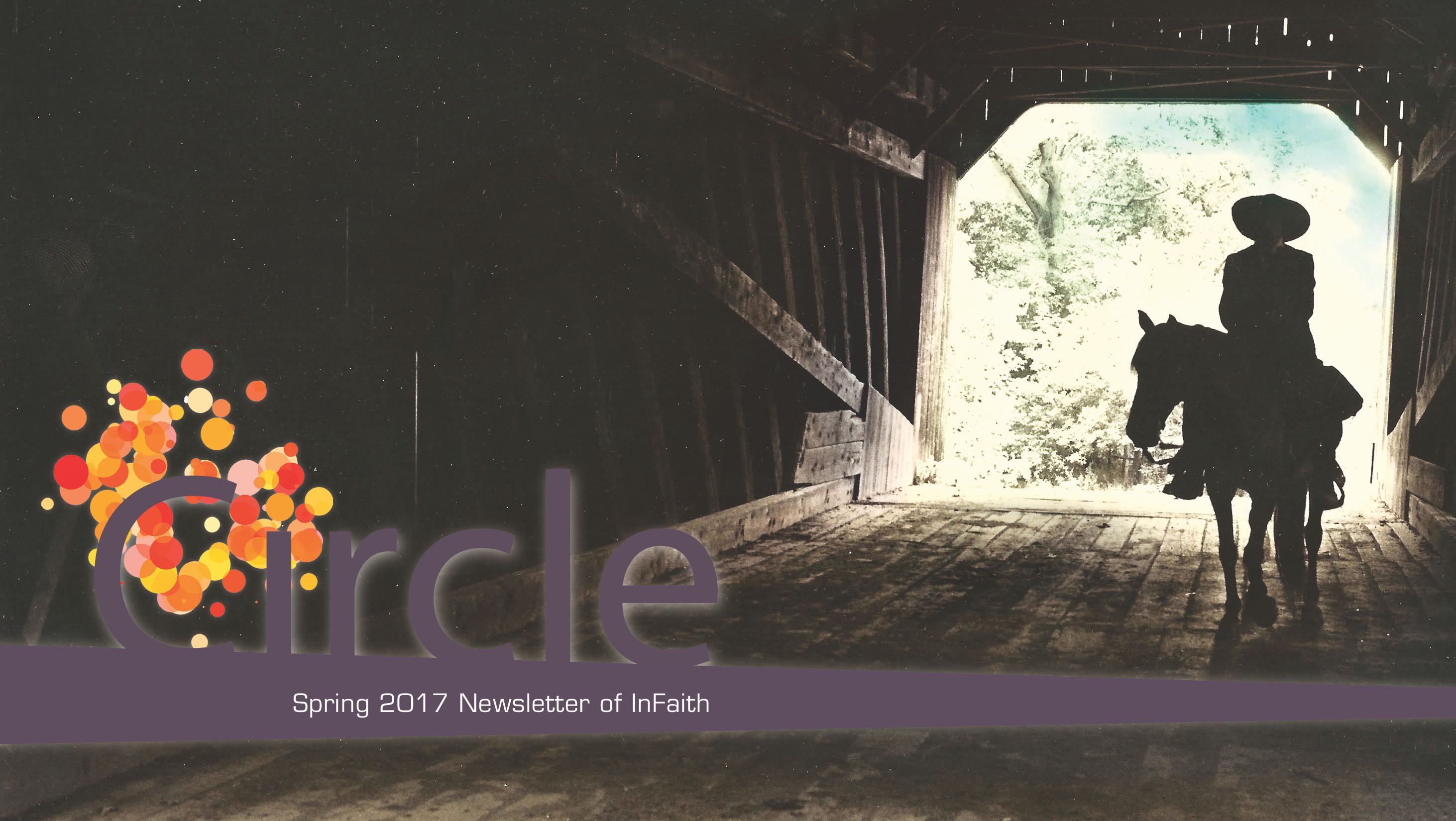INFAITH: 200 YEARS OF REACHING LOCAL AND CHANGING LIVES
InFaith has been reaching locally—actively responding to needs around us—for 200 years. In 1817, Philadelphia was full of children who worked six days a week, with no chance to go to school or learn how to read. A group of local people got together and formed our mission to address the need for education and the gospel message through Sunday schools. 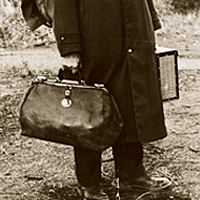 Soon afterwards, we began to publish books, Scripture tickets, alphabet cards, hymnals, and copies of the Ten Commandments to support and extend the work of our Sunday schools.
Soon afterwards, we began to publish books, Scripture tickets, alphabet cards, hymnals, and copies of the Ten Commandments to support and extend the work of our Sunday schools.
By the time we changed our name to the American Sunday School Union in 1824, there were 723 schools with 49,619 scholars. By 1830, we undertook the Mississippi Valley Enterprise to establish Sunday schools throughout the Valley of the Mississippi as our country moved west. More than 50,000 people professed faith in Jesus Christ as a direct result of this work, and churches often sprang up around these Sunday schools.
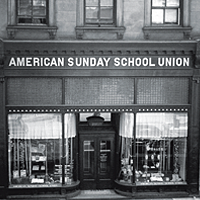 In the early 1900s our missionaries were responding to local needs, and in addition to leading Sunday schools, they were also helping those around them with practical needs: from teaching immigrants English and helping walk them through getting their naturalization papers, to helping organize African Americans to vote. Seeing the need for more focused time with children, our missionaries pioneered Vacation Bible Schools and Christian camping in the 1920s. In the 1960s we sent nurses to minister with food, health, and economic assistance in the Appalachian Mountains.
In the early 1900s our missionaries were responding to local needs, and in addition to leading Sunday schools, they were also helping those around them with practical needs: from teaching immigrants English and helping walk them through getting their naturalization papers, to helping organize African Americans to vote. Seeing the need for more focused time with children, our missionaries pioneered Vacation Bible Schools and Christian camping in the 1920s. In the 1960s we sent nurses to minister with food, health, and economic assistance in the Appalachian Mountains.
Recognizing the fact that we were no longer only a Sunday-school union, but had been responding to changing local needs throughout the country and adapting our methods accordingly, our mission changed its name to American Missionary Fellowship in 1974. In 2011, we changed our name to InFaith in recognition of the active faith that all of our people must have to engage the world with the gospel. Today, we celebrate the diversity of the individual members of our field staff and allow them to develop ministries that best reach their local communities by utilizing their unique gifts and calling to respond to the needs around them. In the same pioneering spirit of all who have come before, we continue to teach the unchanging truth of God to an ever-changing culture.
[To see a timeline of highlights from our 200 years of ministering to the United States, go to infaith.org/heritage.]
LOCAL REACH: MASON CITY, IOWA
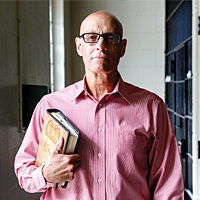 Hancock County Jail in Iowa has around five cells and several shelves of striped pants and shirts in a corner near a washing machine. InFaith’s Ken Quintus squats down, resting on his ankles in order to talk to prisoners through meal slots in the metal cell doors. He asks one man about his day and compliments the writing skill of another who passes a paper to him through the slot. Ken prays with some of the men he visits here and reads the Bible to others.
Hancock County Jail in Iowa has around five cells and several shelves of striped pants and shirts in a corner near a washing machine. InFaith’s Ken Quintus squats down, resting on his ankles in order to talk to prisoners through meal slots in the metal cell doors. He asks one man about his day and compliments the writing skill of another who passes a paper to him through the slot. Ken prays with some of the men he visits here and reads the Bible to others.
“No one should be alone,” Ken says. “The church is called to go to the least, the lost, the lonely. The hope is that they will turn from darkness into the light of Jesus.” Mason City, where Ken does much of his ministry, is a hub for corrections for nine Iowa counties. “I grew up as a down-and-outer, and I have a heart for those who are belittled.”
“Ken was there when I needed him to be there—every time,” says Frank Boyd, whom Ken helped get into a sober-living home and walked through getting a job.
Amy Peckham met Ken six years ago, while she was struggling with alcohol and drugs. “Ken looked me in the eyes,” she says. “I felt like a human again. He brings hope and love to people who haven’t felt that. The world of addiction is so lonely,” Amy adds. “Then you have this man—who has it together—care about you.”
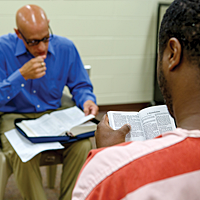 Ken shows his care by visiting men at the local jail and sponsoring a men’s transition home for those coming out of jail. He pastors an unconventional church and leads people in studying the Bible. But anyone who’s with Ken during the course of a day will see the very heart of what he does multiple times: It’s right there in his eye-to-eye contact with people as he asks about their days, takes an interest in their lives, and shares about the hope and change they can find in Christ. “My passion is to come alongside people and help them find their inner value, because they were created to have a purpose,” Ken says.
Ken shows his care by visiting men at the local jail and sponsoring a men’s transition home for those coming out of jail. He pastors an unconventional church and leads people in studying the Bible. But anyone who’s with Ken during the course of a day will see the very heart of what he does multiple times: It’s right there in his eye-to-eye contact with people as he asks about their days, takes an interest in their lives, and shares about the hope and change they can find in Christ. “My passion is to come alongside people and help them find their inner value, because they were created to have a purpose,” Ken says.
[Ken and Deb Quintus live in north- central Iowa. Ken has worked in prison ministry for nearly two decades and has used his knowledge to develop a reentry aftercare ministry for prisoners who have been granted parole in Iowa. Deb helps facilitate substance abuse prevention strategies in their community. Watch their ministry video at infaith.org/masoncity.]
